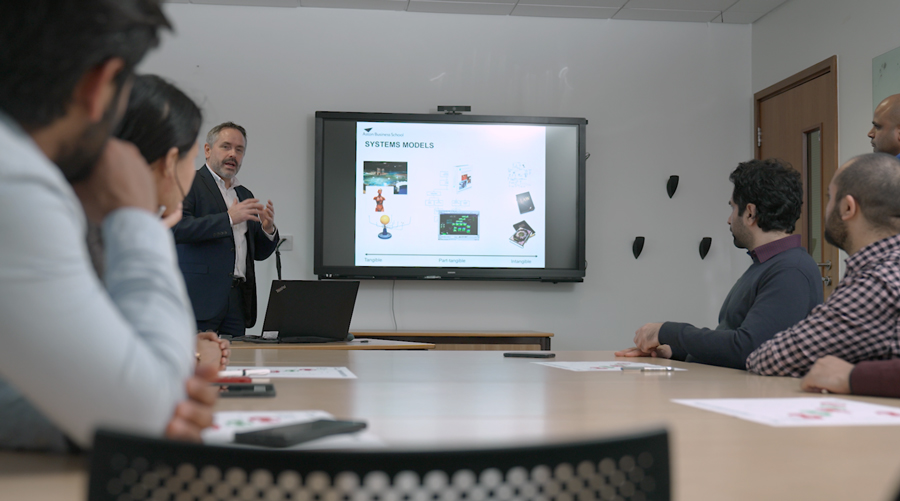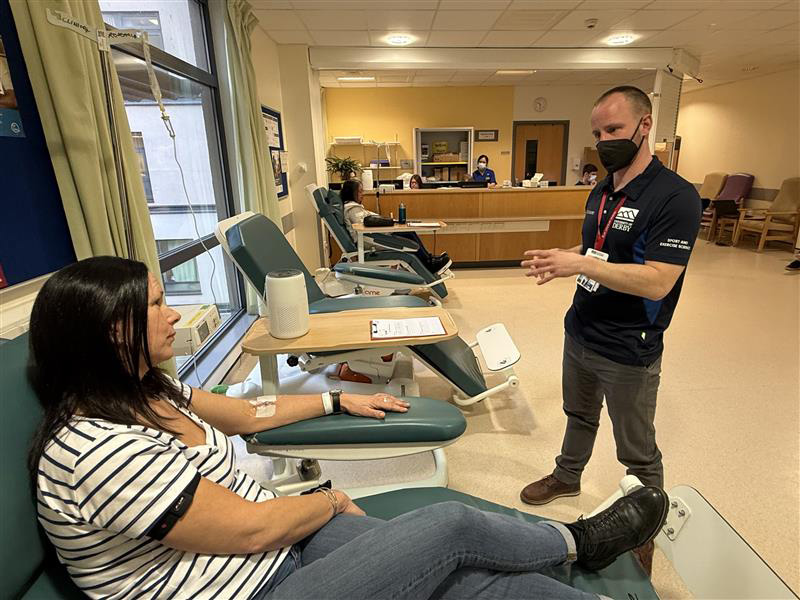Why is Financial Capability so Important for Young People and the Economy as a Whole?

A recent Young Enterprise poll revealed that 9-in-10 lecturers believe financial education should extend beyond maths. In this article, Sarah Porretta, CEO of Young Enterprise, explores why financial education is important for young people and the UK as a whole, and how it can be better implemented into the curriculum.
How financially capable are we?
The UK faces a serious skills gap. Research by the Money and Pensions Service found that fewer than half (47%) of young people can recall receiving meaningful financial education, either in school or at home. Another recent survey of 2,000 UK adults by Freetrade showed that almost half (48%) cannot pass a basic financial knowledge test on savings, investments, and retirement. To close this gap, a focused effort to strengthen financial education in schools and universities is critical. This would empower the next generation with the skills needed to navigate personal finances confidently, boosting the UK’s prospects of becoming a financially literate society.
A decade since financial education became compulsory in England, responsibility for financial education remains unresolved. A recent Young Enterprise poll revealed that 9-in-10 lecturers believe financial education should extend beyond maths, with many calling for its inclusion in subjects like PSHE (75%) and Citizenship (40%) to equip young people with practical financial skills.
Building skills for life
Financial education is a critical step in equipping students with practical lifelong skills that directly benefit employability. By fostering financial capability during their educational career, young people gain the tools to earn, budget, and manage money effectively—qualities that are invaluable to employers seeking work-ready candidates. According to a City & Guilds’ survey of 5,000 young people, 43% feel unprepared for the workforce, highlighting the need for practical education that builds transferable skills, including the ability to manage money.
One student participating in our programme shared, “I now understand how important it is to budget and save. It’s not just about having money now, but knowing how to plan for the future.” Such insights underscore the real-world value that students place on financial literacy.
Cause for optimism?
Despite some promising signs about how young people budget nowadays, comprehensive financial education remains critical, not only to prepare young people for the workforce but to support the government’s goals. Labour’s plans to boost productivity and workforce readiness depend on the wellbeing and financial knowhow of Britain’s younger population. Equipping young people with financial skills not only enhances individual resilience but also aligns with the government’s productivity objectives, empowering young people to contribute meaningfully to economic growth.
Joining the dots: bridging the gap in financial preparedness
A staggering 79% of teachers surveyed by Teach First (Rethinking Careers Education report, 2022) feel students are less ready for the workplace now than in past years, despite efforts to adapt the curriculum. Financial literacy strengthens young people’s employability by equipping them with critical finance skills.
A collaborative approach
Organisations like ours thrive from collaborations with numerous organisations, which work together to create a support ecosystem that is both scalable and sustainable.
A spokesperson for MaPS has previously highlighted the importance of a ‘collective’ approach – “financial education is essential to ensure all children and young people are well-prepared to make the most of their money, now and when they enter adulthood. Evidence suggests a collective approach is needed to improve financial education, as children and young people will require several different touchpoints to learn about money at school, in the home and in the community.” Such an ecosystem relies on the combined support across a multitude of sectors, including finance, technology, and education, working in partnership with educators and industry volunteers. By engaging with organisations like Young Enterprise, the corporate sector is helping bridge the gap in financial preparedness.
Engaging business and government
The corporate sector has a key role to play. By offering work experience, facilitating employee volunteering in schools, and supporting education-focused organisations businesses and the government can create a sustainable ecosystem through which young people are offered the opportunity to prepare for their future financial lives and careers.
Financial education meets…drama lessons?
Financial education need not be a boring or difficult topic. There are many different ways educators can approach bringing this to young people. In one innovative classroom, a financial education lesson was delivered through drama. Students explored a range of financial circumstances by role-playing a family and exploring the impact these circumstances had on that family. Through this interactive scenario, they learned about prioritising expenses, negotiating, adapting when unexpected costs arose, and most importantly the emotional impact that money can have on relationships. This kind of applied learning brings financial concepts to life, making them relevant and engaging for students.
A critical moment for change
As the Government reviews the curriculum, emphasising ‘how’ we teach is essential. Applied learning approaches have shown to improve young people’s engagement and educational outcomes, transforming readiness for the workforce. In addition to reducing reliance on individual educator’s efforts, applied financial education has the potential to boost productivity and social mobility on a national scale.
Hope for the future
When young people are financially capable, they are better prepared for work and life decisions.
Consistent, practical financial education has been shown to improve learning attitudes, attendance and motivation. By embedding financial capability into all facets of the educational journey, particularly in further education and work-based learning contexts, we can achieve a positive return on investment for the benefit of the UK’s future prosperity.
By Sarah Porretta, CEO, Young Enterprise











Responses